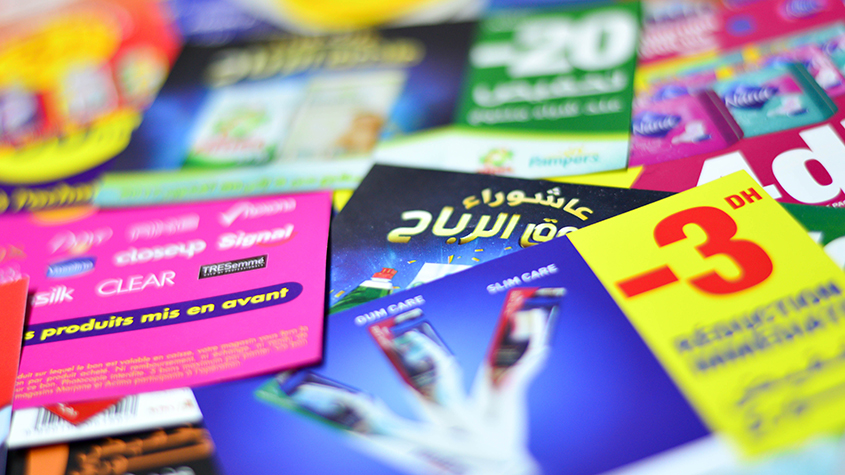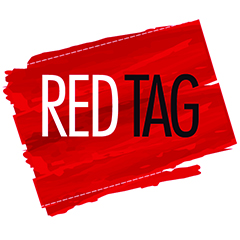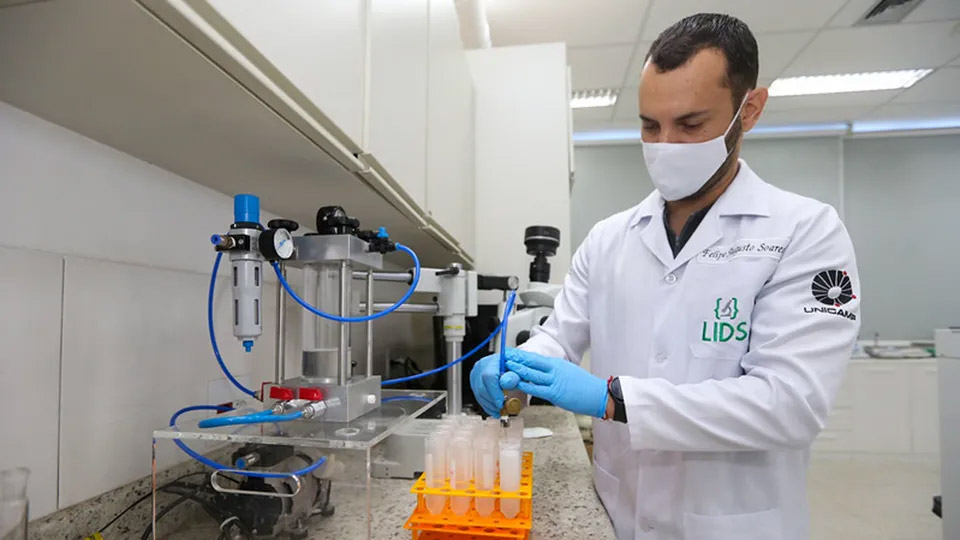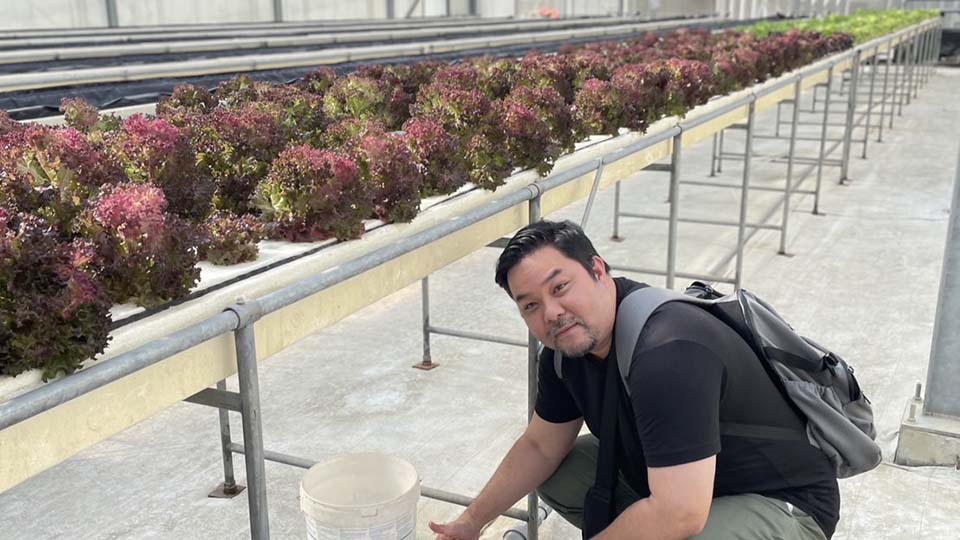IAP supports cutting-edge discount system taking on coupon fraudsters
Moroccan entrepreneur Kenza Ababou designed a fraud-proof discount system for retailers, but struggled to prepare a patent application to protect her invention. Thanks to WIPO’s Inventor Assistance Program (IAP), she has now patented her unique discount system and is hoping to transform sales promotion in Morocco and throughout Africa.

Ever since the 1890s, when entrepreneur Charles William Post began issuing discount coupons for his breakfast cereal, businesses have used promotions to boost sales and build customer loyalty. The 2000s saw companies take the leap into digital promotions, allowing them to benefit from online marketing, personalized offers and faster and more convenient transactions. Today, the growing popularity of digital wallets – which are predicted to account for US$10 trillion in sales by 2025 – is opening even more avenues for discounts, loyalty schemes, digital coupons and other forms of sales promotion.
However, the rapid expansion of e-commerce has left businesses vulnerable to fraud. Promotional fraud – whereby people use illicit means to take advantage of promotional offers – is on the rise, with fraudsters using a variety of tactics, such as re-using promotional codes and falsifying documents, to cash in on rewards and discounts.
Despite sometimes being portrayed as a victimless crime, promotional fraud has real and potentially serious impacts for business owners, including a loss of revenue and of potential customers. Nor are the victims all multinational corporations: many are small companies and startups using promotions to establish or expand business.
Promo code abuse
The challenges and opportunities of digital promotion were well known to Moroccan entrepreneur Kenza Ababou. After working in marketing at home in Morocco and in France, in 2013 Kenza founded RedTag, a Moroccan company offering innovative approaches to discount couponing to prevent fraud.
RedTag was soon providing coupons to Morocco’s big retailers, such as Marjane, Carrefour, etc., and Kenza was keen to start working with smaller businesses. These smaller companies make up four-fifths of Morocco’s retail market – offering huge potential for RedTag to expand – but they lack the digital security infrastructure of industry giants. This meant that existing coupon schemes would be easy targets for promotional fraud.
Cracking down on promo abuse with fraud-proof discount coupons
Inspired by the recent introduction of digital wallets in Morocco, as well as the ubiquity of smartphones and messaging apps, Kenza designed an innovative anti-fraud system for sales promotion suitable for businesses of any size. Her e-commerce fraud prevention system relies on a unique coupon code that can be placed within the packaging of a single product (targeting end customers) or the box of products (targeting wholesalers, groceries and mobile retailers). Customers can use their messaging app to send this code to an account associated with the promotion. Once they submit enough codes, the promotional account communicates with a clearing house to transfer money into the customer’s digital wallet.

The complexity of Kenza’s system, which establishes communication channels between personal devices, digital wallets, financial institutions, clearing houses and promotional accounts, makes it impregnable to standard methods of promotional fraud.
“With this system we can be sure that the person using the code has really bought the product,” explains Kenza. “This is very important for the Moroccan market, because even if the discount coupons are worth one or two dirhams [approximately 10 to 20 US cents], they have real value for Moroccans, so fraud is much more tempting.”
The challenges of patenting
Kenza realized that she had created something unique. “Today, RedTag is the only company in Morocco to offer discount coupons with this anti-fraud element, for both big and small shops,” she notes. “Obviously, it was very important for me to protect this anti-fraud component with a patent, because it was new and because a great deal of thought went into it.”

As Kenza began researching the patenting process, however, she realized she lacked the technical know-how to successfully prepare and file a patent application. “Patent drafting is a craft,” says Kenza. “It’s a very complex and codified business, and there are very strict rules that must be followed. You have to understand the specifics of the invention and know what needs to be emphasized. I really needed help from someone knowledgeable.”
Kenza is not alone in these difficulties. The systems that protect intellectual property (IP) are complex legal creations, and many inventors lack the training to understand the technicalities of the patenting process. As a result, as many as half of all inventors fail to obtain patents for their products when they represent themselves. Patent attorneys are available for hire, but many inventors – especially in the Global South – lack the funds needed to access these professional services.
Inventor Assistance Program
WIPO’s Inventor Assistance Program (IAP) supports inventors like Kenza obtain the professional advice they need to navigate the patent system and successfully commercialize their invention. A partnership between WIPO and several national patent offices, the IAP pairs inventors with a volunteer patent attorney or agent who provides patent drafting and prosecution services free of charge. With volunteers in nine countries (Chile, Colombia, Ecuador, Kenya, Morocco, Peru, the Philippines, Singapore and South Africa), the IAP not only helps inventors seek patents for their innovations at home but internationally, too.
Kenza was introduced to the IAP by the Moroccan Industrial and Commercial Property Office (OMPIC), which helped her submit her request for assistance to the Program. After being accepted to the Program, Kenza began working with Mohamed El Harzli, an IAP volunteer and head of the Center for Innovation and Technology Transfer at Morocco’s Abdelmalek Essaâdi University.
“Mr. El Harzli helped me enormously,” recalls Kenza. “My business is unique, with unique challenges, and he really made the effort to understand it as well as the nature and aim of my invention.” Mohamed carried out a pre-filing prior art search, to ensure that a similar system had not already been invented, before drafting and filing a national patent application. He also helped file a subsequent application under WIPO’s Patent Cooperation Treaty (PCT), opening up the possibility for Kenza to seek protection for her invention in the PCT’s 157 Contracting States. “I honestly couldn’t have managed without him,” says Kenza.
Bringing RedTag Discount Fraud Prevention System to market
In 2021, Kenza was granted two patents for her invention in Morocco thanks to the support she received from the IAP. With her IP now secure, Kenza is excited to implement her coupon management system in Morocco and start working with the small businesses that comprise the bulk of Morocco’s retail market. Looking further ahead, she hopes her coupon fraud prevention system will one day be used by businesses across Africa.
Kenza looks back on her time with the IAP fondly and encourages her fellow innovators to get involved. “I think that the IAP is an extraordinary opportunity for many inventors in Morocco. Without it, I would never have filed or even drafted my patent application. So I hope the IAP will continue helping inventors like me.”
Want to find out more? Visit the Inventor Assistance Program’s page to learn more about how to apply as an inventor, become a volunteer or a sponsor of the Program.



